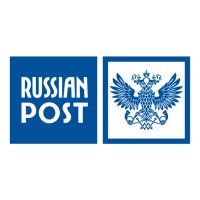
Russian Post Company Cyber Security Posture
ruspost.euRussian Post is one of the largest internationally operating logistics groups and the national postal service provider of the Russian Federation. We offer a broad and multimodal portfolio of domestic and international e-commerce, parcel shipping and logistics solutions, by road, sea and air. With an extensive network of over 38,000 post offices and more than 330,000 employees, Russian Post is one of the largest employers in Russia. Moreover, Russian Post maintains three offices in Europe with corresponding ETOE (extraterritorial office of exchange). The main European location is Berlin, the other two locations are in the UK and Finland. With customized solutions covering the entire shipping process, customs processes, last mile and returns, to and from Russia, Russian Post has positioned itself as a bridge builder between Russia and the world. This account is operated by the Russian Post Europe team from Berlin.
Russian Post Company Details
russian-post
10,001+ employees
0
none
Transportation/Trucking/Railroad
ruspost.eu
Scan still pending
RUS_1416749
In-progress
Between 200 and 800
This score is AI-generated and less favored by cyber insurers, who prefer the TPRM score.
 Russian Post Global Score
Russian Post Global Score.png)

Russian Post Company Scoring based on AI Models
| Model Name | Date | Description | Current Score Difference | Score |
|---|---|---|---|---|
| AVERAGE-Industry | 03-12-2025 | This score represents the average cybersecurity rating of companies already scanned within the same industry. It provides a benchmark to compare an individual company's security posture against its industry peers. | N/A | Between 200 and 800 |
Russian Post Company Cyber Security News & History
| Entity | Type | Severity | Impact | Seen | Url ID | Details | View |
|---|
Russian Post Company Subsidiaries

Russian Post is one of the largest internationally operating logistics groups and the national postal service provider of the Russian Federation. We offer a broad and multimodal portfolio of domestic and international e-commerce, parcel shipping and logistics solutions, by road, sea and air. With an extensive network of over 38,000 post offices and more than 330,000 employees, Russian Post is one of the largest employers in Russia. Moreover, Russian Post maintains three offices in Europe with corresponding ETOE (extraterritorial office of exchange). The main European location is Berlin, the other two locations are in the UK and Finland. With customized solutions covering the entire shipping process, customs processes, last mile and returns, to and from Russia, Russian Post has positioned itself as a bridge builder between Russia and the world. This account is operated by the Russian Post Europe team from Berlin.
Access Data Using Our API

Get company history
.png)
Russian Post Cyber Security News
Russian cyber research companies post alerts about infostealer, industrial threats
Russian cybersecurity companies released multiple research reports about specific threats over the last week, including one about a “large-scale ...
As Trump warms to Putin, U.S. halts offensive cyber operations against Moscow
Defense Secretary Pete Hegseth has ordered U.S. Cyber Command to pause cyber and information operations against Russia as Trump seeks to ...
Pro-Russian Cyberattacks Hit Websites of Italian Ministry, Airports
The NoName057(16) group is known for targeting public institutions and strategic sectors in NATO countries that have supported Ukraine in its ...
ANALYSIS: Cybersecurity as a Bargaining Chip in Ukraine Talks – US Backs Off Russian Threats, Part 2
As ceasefire talks unfold, Washington appears to be leveraging cybersecurity and intelligence-sharing as diplomatic tools – potentially ...
‘Aggressive' Russian cyber attacks boosted Romania's pro-Moscow presidential candidate
Calin Georgescu, the pro-Russian outsider candidate now leading in Romania's presidential elections, was "aggressively" promoted on social ...
Russian cyber attacks an ‘ongoing threat' to Jersey
Russian cyber attacks an 'ongoing threat' to Jersey · Business leaders sound alarm over falling birth rate · New Acting Airport Director and ...
After the SolarWinds hack, the Biden administration must address Russian cybersecurity threats
The Biden administration is likely to make a point of a multifaceted, well-funded, and strategic approach to cybersecurity threats that are only becoming more ...
Trump administration retreats in fight against Russian cyber threats
The US has long warned that Russia posed a cyber threat to US infrastructure, including in the annual threat assessment published by US ...
#Infosec2025: Good Cybersecurity Enabled Ukraine’s Surprise Attack on Russia, Says NCSC
Effective cybersecurity played a key role in this week's audacious Ukrainian drone attack on Russian strategic bombers, a leading government ...

Russian Post Similar Companies
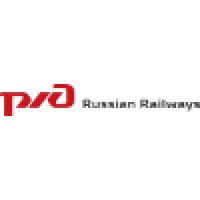
Russian Railways
Russian Railways is Russia’s leading railway company and one of the largest companies in the global transport sector. The Company is a natural monopoly and fully owned by the Russian Federation. Our primary goal is to meet the state’s rail transport and employment needs, and to provide services to p
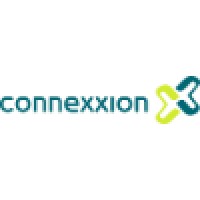
Connexxion
Connexxion wil de beste keuze zijn op het gebied van regionaal personenvervoer in Nederland. Met zorg brengen wij mensen op hun bestemming met toegankelijk, duurzaam en veilig vervoer! Wij willen mobiliteit voor iedereen toegankelijk en beschikbaar houden. Want wij geloven dat mobiliteit essentieel

SBB CFF FFS
We shape the mobility of the future – simple, personal, connected. SBB’s comprehensive service contract allows us to offer a wide range of exciting careers in all areas of business. Thanks to this variety, many different career paths are possible, which we support through education and training o
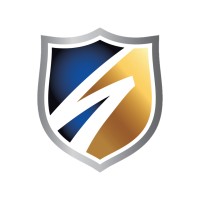
Swift Transportation
Swift Transportation is the largest full-truckload motor carrier in North America. Based in Phoenix, Arizona, the Swift terminal network includes over thirty full-service facilities in the United States and Mexico. Swift provides a full line of service solutions, including linehaul, flatbed, intermo
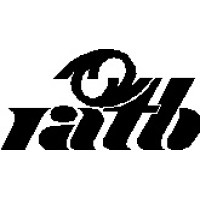
RATB
Collective Transport Company from Bucharest It operates a complex network of buses, trams and trolleybuses – in fact, all public transport except the Bucharest Metro, which is managed by Metrorex. While owned entirely by the City Council, RATB is an autonomous company. The RATB transport servi

Frequently Asked Questions
Explore insights on cybersecurity incidents, risk posture, and Rankiteo's assessments.
Russian Post CyberSecurity History Information
How many cyber incidents has Russian Post faced?
Total Incidents: According to Rankiteo, Russian Post has faced 0 incidents in the past.
What types of cybersecurity incidents have occurred at Russian Post?
Incident Types: The types of cybersecurity incidents that have occurred include .
Incident Details
What are the most common types of attacks the company has faced?
Additional Questions
What Do We Measure?
















Every week, Rankiteo analyzes billions of signals to give organizations a sharper, faster view of emerging risks. With deeper, more actionable intelligence at their fingertips, security teams can outpace threat actors, respond instantly to Zero-Day attacks, and dramatically shrink their risk exposure window.
These are some of the factors we use to calculate the overall score:
Identify exposed access points, detect misconfigured SSL certificates, and uncover vulnerabilities across the network infrastructure.
Gain visibility into the software components used within an organization to detect vulnerabilities, manage risk, and ensure supply chain security.
Monitor and manage all IT assets and their configurations to ensure accurate, real-time visibility across the company's technology environment.
Leverage real-time insights on active threats, malware campaigns, and emerging vulnerabilities to proactively defend against evolving cyberattacks.




